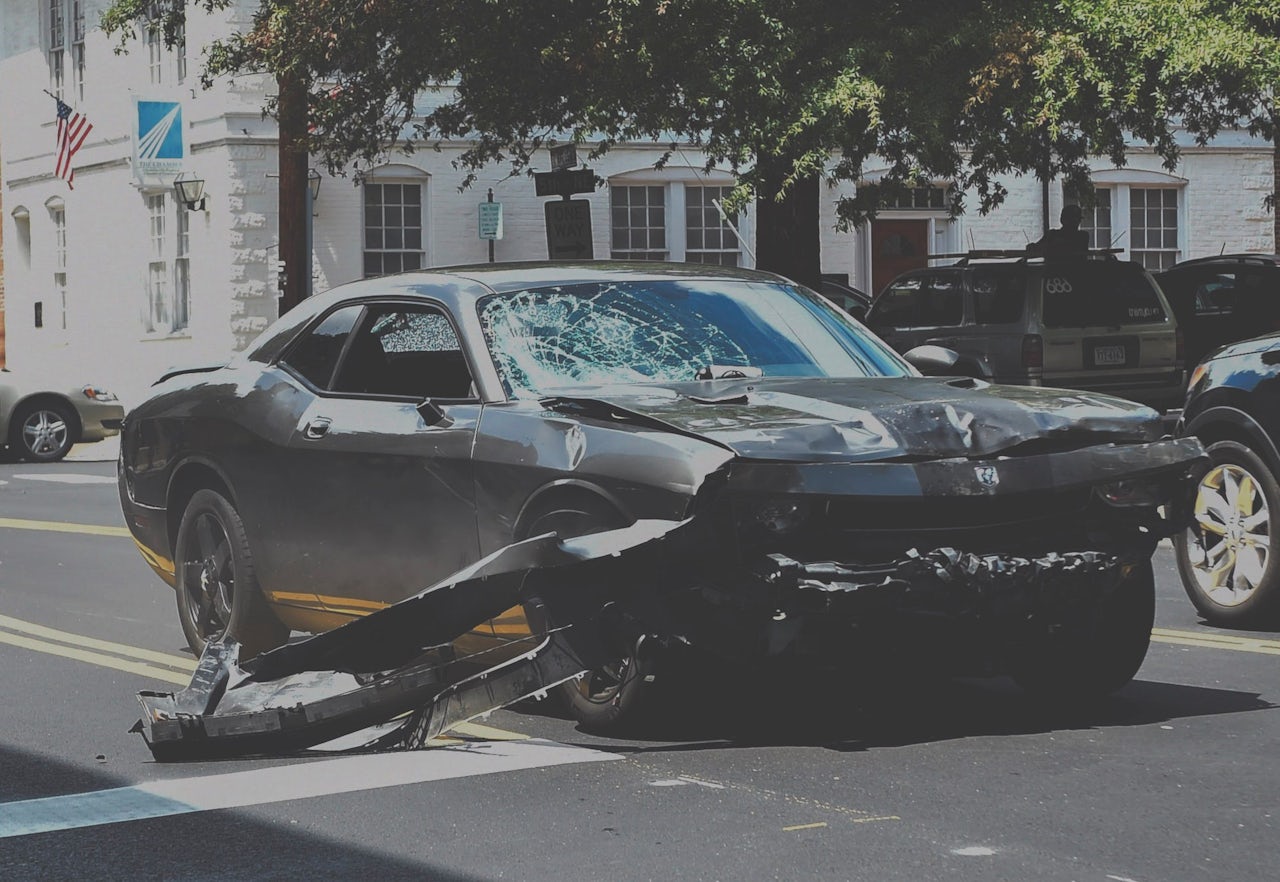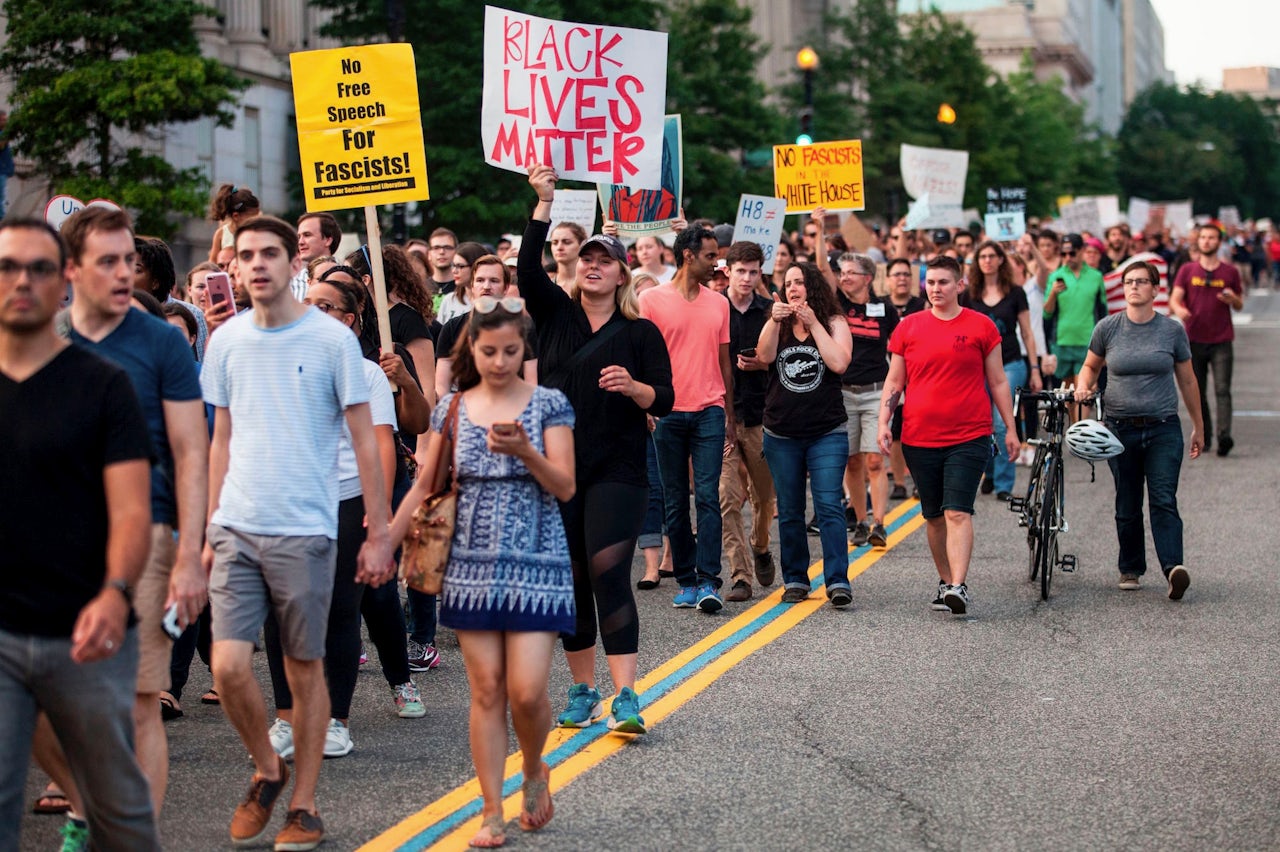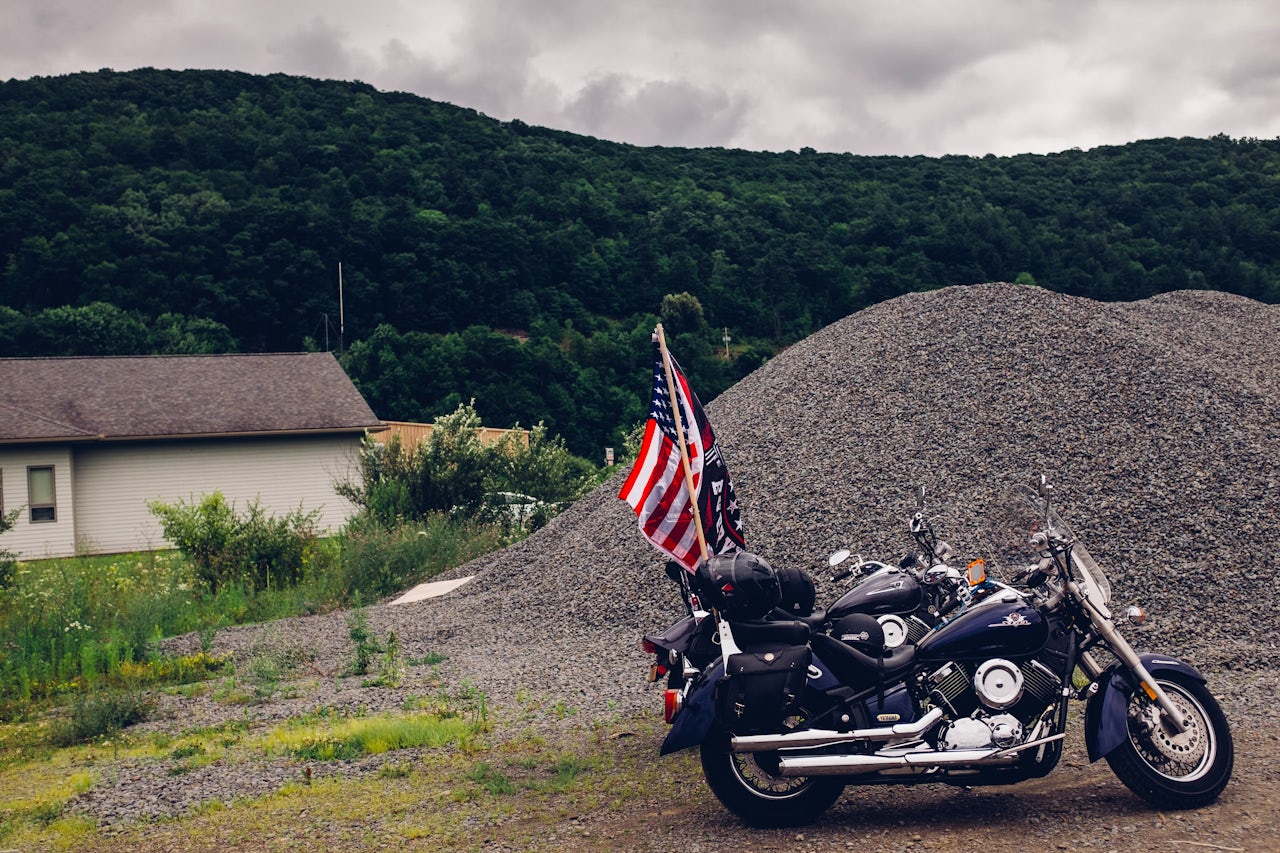Saturday’s terrorist attack in Charlottesville, Virginia that left 32-year-old Heather Heyer dead and 19 people wounded was committed using a car. Almost immediately, Charlottesville police spread speculation (with the help of a reporter at The Hill, whose tweets about it have now been deleted) that the driver was “scared” when he plowed into a group of protesters.
A reasonable person might say that, scared or not, someone who plows a car into dozens of people in a street should be held accountable for their actions. But in the wake of recent protest movements including Black Lives Matter, authoritarian state legislators across the country have been working to legitimize the act of crashing a car into people on the street if those people happen to be protesting.
North Dakota started the trend in January, with a bill in the aftermath of protests at Standing Rock that aimed to shield drivers who killed protesters with their cars from criminal and civil liability if they “exercised reasonable care.” The bill narrowly failed in the North Dakota House. In February, Tennessee state representative Matthew Hill proposed a bill that would have also banned lawsuits against drivers who hit peaceful protesters; Hill’s bill died in committee. The Florida Senate’s iteration of the bill, introduced in February, meanwhile, simultaneously created a misdemeanor for someone who “obstructs or interferes with the regular flow of vehicular traffic” and barred lawsuits against drivers who “unintentionally” hit protesters. The burden of proof would have been on the protester who was hit by the car; that bill died in committee. Rhode Island had a similar bill introduced in March; a week later, it was held for “further study.”
Also in March, the North Carolina House of Representatives — a body of officials who currently represent districts that have been ruled by federal courts to be illegally and racially gerrymandered — passed a bill that would protect drivers who hit protesters from being sued by the victims, as Sarah Jones noted at The New Republic. “A person driving an automobile who is exercising due care and injures another person who is participating in a protest or demonstration and is blocking traffic in a public right-of-way, is immune from civil liability for the injury,” the bill says. “Due care” isn’t defined in the proposal.
The bill, which could be taken up by the North Carolina Senate either this year or next, was aimed at protesters in Charlotte who shut down highways in nonviolent demonstrations after after a police officer shot and killed Keith Lamont Scott. “These people are nuts to run in front of cars like they do,” Rep. Michael Speciale said when North Carolina House passed the bill. “If somebody does bump somebody, why should they be held liable?”
It’s not clear if all of these bills were part of some coordinated effort by a larger group or if legislators are simply cribbing ideas from each other, but either way, it’s not a coincidence. Interestingly, the original versions of the Tennessee, Rhode Island, and North Carolina bills — all of which were introduced in February and March — were strikingly similar, even down to the language used. All of the aforementioned bills were introduced by Republicans (although Rhode Island’s had two Democratic cosponsors).
“If somebody does bump somebody, why should they be held liable?”
Are drivers being sued so frequently for accidentally running over protesters that a blanket rule was necessary? It doesn’t seem so, although there have been a small number of motorist-demonstrator crashes in recent years. A motorcyclist allegedly knocked a man down at a Florida anti-Trump rally in November; a motorist in Minneapolis drove his car through a highway protest in 2014, injuring a 16 year old girl; and an 18-year-old man in Nevada plowed through a group of anti-Columbus Day protesters last October, resulting in one protester suffering from multiple pelvic fractures.
Rather, these bills are part of an attempt to quell and control civil rights movements. Republican legislators are attempting to ease restrictions on drivers murdering demonstrators. At the same time, they’re also trying to criminalize peaceful protest.
In Ferguson, Missouri, where protests following the police shooting death of Michael Brown in 2014 gave birth to the Black Lives Matter movement, a bill was proposed to create a crime called “unlawful traffic interference” that would have made it a felony to shut down a highway. In Oregon, meanwhile, a bill introduced in February would have forced the state’s public universities and community colleges to expel students who were convicted of rioting, and in Virginia a bill that failed in the state Senate would have upped the penalty of refusing to disperse from the scene of a “riot” from a fine to potential jail time. (Only one bill we found along these lines, a Massachusetts proposal to impose stiff penalties for “impeding the flow of traffic on public ways,” was introduced by a Democrat.)
The Washington Post counted 18 states as of February where Republicans had introduced anti-protest bills; luckily, most of the bills mentioned haven’t gotten anywhere close to becoming law yet. But they’re important because they show just where the Republican Party stands on the issue of protest when it comes from the left, illustrating an authoritarian streak that existed in the conservative movement long before Donald Trump, and will continue to grow after him.
These bills originated with the goal of persecuting protest movements led by people of color. Police violence against Standing Rock protesters last year warranted a United Nations investigation; instead of addressing those human rights concerns, however, North Dakota Republicans tried to make it easier to kill people with your car. That conservatives have long lamented riots and looting — considering them violent instigations rather than reactions to a violent system — but are simultaneously attempting to discourage peaceful protest is not a coincidence. The problem, as these bills showed, is the act of protest itself.
Sanctioning vehicular homicide might be a new play for conservatives, but reactionaries showing their authoritarian tendencies when confronted with protest is nothing original. As Michelle Alexander wrote in The New Jim Crow, the political weaponization of “law and order” by conservatives emerged at the end of Jim Crow as a response to direct action — sit-ins, strikes, boycotts, and other forms of civil disobedience — against segregation.
“Southern governors and law enforcement officials often characterized [direct action] tactics as criminal and argued that the rise of the Civil Rights movement was indicative of a breakdown of law and order,” she wrote. “Support of civil rights legislation was derided by Southern conservatives as merely ‘rewarding lawbreakers.’��
Recounting the history is not to say that the president doesn’t deserve his share of the blame. The authoritarian tendencies of Trump, who offered a transparently flippant Twitter condolence to the family of the counter-protester who was murdered on Saturday, have been well-documented, most prominently in the actions of his immigration police. And Trump’s lack of interest in Charlottesville, because it lacked an angle for his martyr complex, was palpable: he gave a stronger condemnation of Mitch McConnell over the Senate leader’s Trumpcare failures than he did of the Klan members, neo-Nazis, white nationalists, or the man charged with murder at Saturday’s rally.
Authoritarianism — particularly anti-dissension — is a thread that runs throughout the entire conservative movement in 2017, not just the Trump wing. As Trump unintentionally acknowledged on Saturday: “It’s been going on for a long time in our country.” And again, just as they have for as long as political violence against the marginalized has existed in America, the reactionaries have chosen their side.


